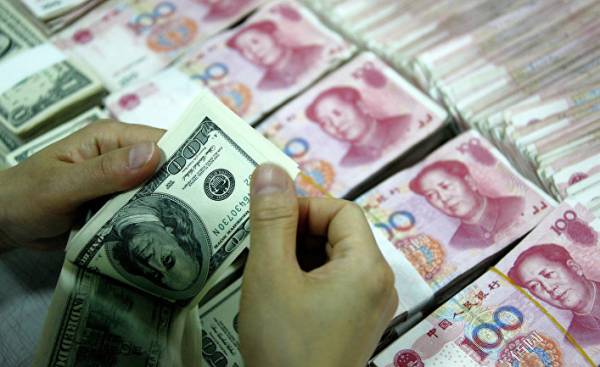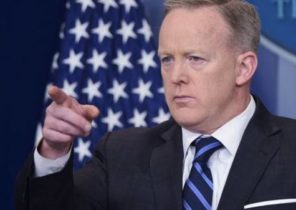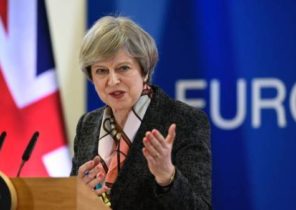
Passionate supporters of the “world, based on the approved norms of the trading system” must be so tired from thinking that they know more than the President of the trump. He was branded as a protectionist, so many conclude that he is not able to assume world leadership. At the same time, proponents of global free trade discounting the fact that “rules” do not apply to many working Americans and companies.
Of course, regulations concerning the international arrangements on exchange rates, do not apply. Monetary unity was the key to the work of the organizations of the Bretton woods agreement, established after the Second world war to prevent future crises in the global order associated with the trade. The international monetary system, formed in 1944, was based on fixed exchange rates tied to convertiremos in gold dollar.
Now such a system does not exist. No real leader can’t seek to defend the logic and the principles of free trade, is not faced with a practice that undermines both, that is currency manipulation.
When governments manipulate the exchange rates to influence the currency markets, they nullify the honest behavior of countries aspiring to a fair confrontation on the worldwide market. Supply and demand are violated by artificial prices obtained through self-imposed exchange rates. Business fails due to the fact that legally the proceeds converted into foreign exchange losses.
Not surprisingly, this is due to the cynical lightness of the supporters of free trade, understanding that the game goes against them. Speaking against Pacific partnership in June 2015, member of the U.S. house of representatives Debbie Dingell (Debbie Dingell) explained: “We can compete with anyone in the world. We create the best product. But we can’t compete with the Bank of Japan or the Japanese government.”
In other words, Central banks provide a useful cover currency manipulation. Allegations of manipulation of their currency for trading purposes Japan responds that changes in exchange rates occur because monetary policy aimed at fighting inflation and improving the employment situation in the country. But it is undeniable that one of the first “shocks” of the economic strategy of Japan under Prime Minister Shinzo Abe since late 2012 has been the use of radical quantitative easing to increase the “competitiveness” of Japanese exports. In the next three years the yen fell against the dollar by 40%.
In April last year the Minister of Finance of the USA Jacob Lew (Jacob Lew) has warned Japan from the use of the undervaluation of currencies to gain an advantage at the auction and made it a “checklist” of potential manipulators of the currency. In response, the Finance Minister of Japan Taro ASO has threatened to raise the bar, saying he was “ready to intervene” in the international Forex market.
China has long been directly intervene in the international currency market to manipulate the value of its currency. The people’s Bank of China announces daily range of the currency exchange rate between the yuan and the dollar, allowing its currency to move more than 2% from the specified value. When the value of the yuan begins to exceed the desired rate, the government of China buys dollars in order to reduce the yuan. When it starts to fall below the desired rate, China sells dollar reserves to buy its currency.
The government reserves in China account for almost 3 trillion dollars. According to Mr. Lew, the US should refrain from criticism, because China has spent nearly 1 trillion on cushioning the fall of the yuan in the past two and a half years. Speaking of veiled rebuke in response to the intention of Mr trump to give the label China currency manipulator, Mr. Liu said analytically dangerous to equate the current policy of interference with China’s earlier attempts at devaluation of the yuan to achieve the benefits in the trade. China, he noted, would be willing to accept only “sober” criticism.
Regardless of overstates China exchange rates or, conversely, restrains them, manipulation is still a manipulation, and they cannot be ignored.
Upon sober reflection, we must recognize that the changes occurring due to government intervention in the international currency market impact on trade and capital inflows. Country, overestimating the value of its currency against the dollar, may have a strategic target for investment in US assets.
Understanding that free trade must be based on stable exchange rates to goods and capital moved in accordance with the principles of the free market, lost due to technocrats-of the elite who extol the benefits of globalization. But there is no need to dedicate hundreds of pages of carefully drafted terms of trade, which gradually reduce the tariffs by a few percent when the currency manipulation can destroy them in a matter of days.
Mr. trump makes the right first step to deal with this problem, wondering why there are no adequate rules limiting States of manipulating its currency.
The second step is to install a universal set of rules based on monetary sovereignty and discipline, allowing different countries to voluntarily participate in a trade agreement that would not allow them to undermine genuine competition by manipulating exchange rates.
The tendency of Mr. trump to identify the root problems and to take tough action to solve them inspires enthusiasm. He’ll do the right thing, if you do the next step for free trade and establish a system that ensures stability in the exchange rate.







